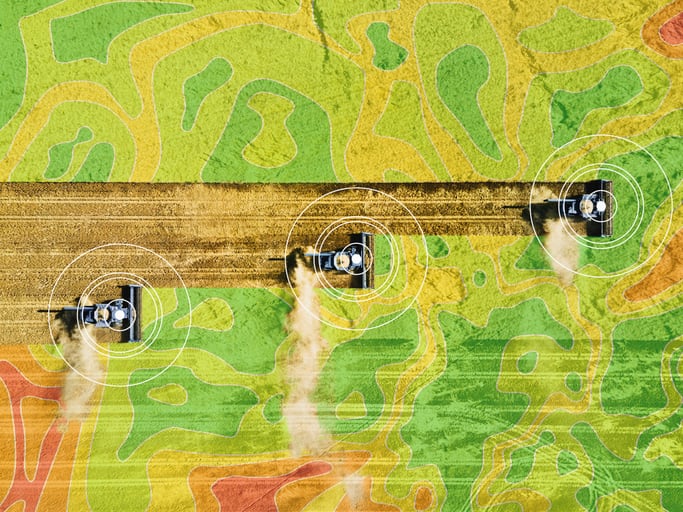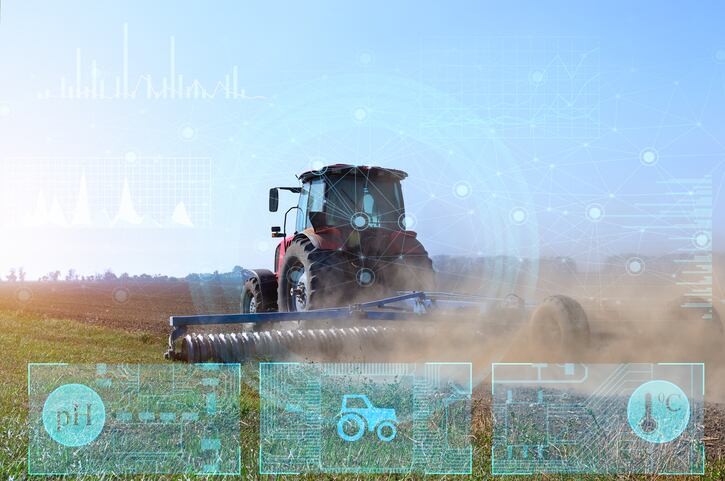BioConsortia secures US$15 million
BioConsortia, the start-up being championed by Khosla Ventures, discovers, designs and licenses advanced microbial products to reduce the ecological impacts of agriculture while ensuring crop productivity.
It announced it has closed an internal financing round to expand development of microbial products designed to increase crop yields by fixing nitrogen or controlling nematode, fungal and soil insect pests.
Existing investor Otter Capital led the round, reportedly excited by progress shown in recent field trial results, as well as new discoveries that further enhance BioConsortia’s microbial gene-editing leadership position.
BioConsortia CEO Marcus Meadows-Smith said: “We have validated the consistency and impact of our nitrogen-fixing seed treatments through hundreds of field trials across a wide array of crops in recent years. This announced investment underlines our confidence that these technologies, with their extended shelf- and on-seed life, set a new standard for nitrogen-fixation products.”
The raise will fund broadened field trial programmes in key agricultural regions around the world. The company will also invest in expanding its intellectual property in microbial gene-editing. Its biofungicide, bionematicide, postharvest decay control and nitrogen-fixing products will approach commercialisation beginning in 2024.
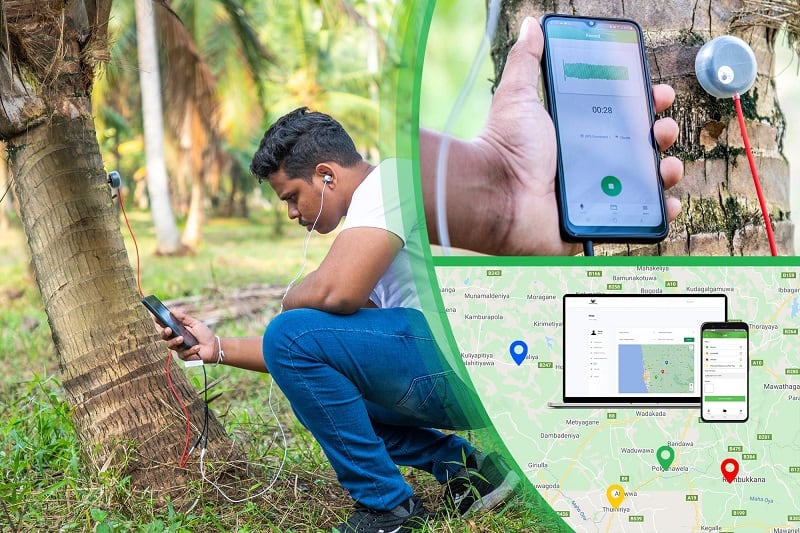
Spinout set to accelerate efforts to help palm tree farmers improve yields
A UK start-up focused on crop yield and lowering the environmental impact of palm farming has raised capital to accelerate its efforts to help palm tree farmers improve yields.
Led by an acoustic sensor that monitors and analyses the health of palm trees, Permia Sensing aims to increase productivity on palm plantations (coconut, dates and oil) while reducing environmental harm. Higher yields per hectare, it believes, should also mean less additional land usage is required for palms in the future.
Permia – a spinout from Imperial College London – also uses satellite and drone data to monitor hundreds of thousands of trees with AI algorithms. Instead of manual monitoring systems, farmers can check their trees’ health through Permia’s technology.
The technology was initially developed to detect Red Palm Weevil – a parasite that has been declared a global threat to the food industry by The Food and Agriculture Organization of the United Nations (FAO), and which is estimated to cause loss of around 10% of the world’s coconut palm yield each year, costing farmers around £450 million. Palm yields often underperform their potential by over 50%, with Red Palm Weevil being a key reason for coconuts and dates.
The spinout’s system not only identifies which trees are underperforming, but also diagnoses what is wrong with them.
After completing a funding round through private equity firm Growthdeck (the target was £193,000 but they overfunded and reached just under £246,000, or US$310,000), Permia will now this year expand its services to monitoring water stress and fertiliser usage as it continues to build a comprehensive service to help optimise crop yield.
The company currently operates in farms in South Asia and plans to expand into Africa and the Middle East, then Southeast Asia and South America by 2026. It is targeting sales to well-established Western companies that own and manage large palm plantations.
Paul Boon, head of financial analysis at Growthdeck, said: “Permia Sensing aims to become the market leader in agricultural palm tree monitoring – it has the potential to maximise palm yield and minimise environmental harm on a major scale.
“It’s exciting to be backing such an impactful technology for such a critical crop. Improving palm production will have a transformative effect for farmers, food producers and consumers worldwide.”
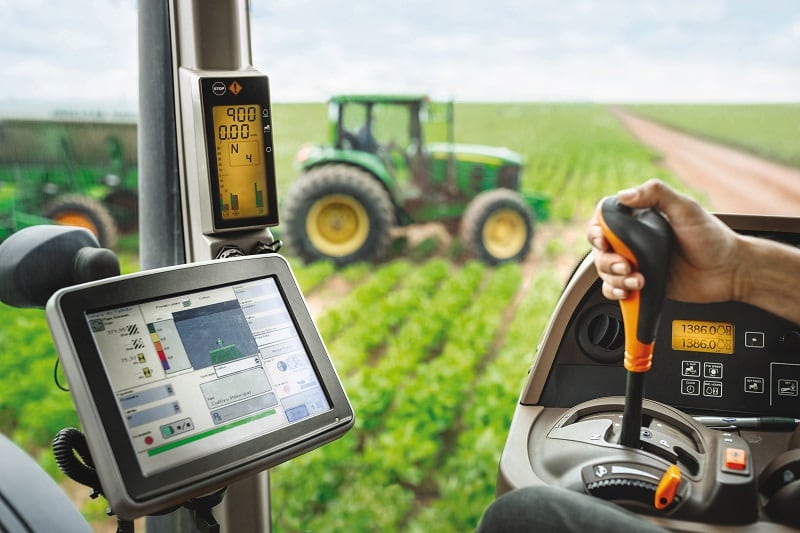
Bayer joins forces with software provider to drive regenerative practices
Bayer has announced a partnership with UK-based Trinity Agtech. As part of Bayer’s efforts to drive regenerative agriculture, Trinity Agtech’s platform, called Sandy, will be instrumental for Bayer’s Carbon Initiative in the region EMEA in measuring and monitoring carbon on a farm level.
Bayer’s European Carbon Initiative enables farmers, food processors and retailers to achieve carbon commitments and implement regenerative agriculture practices.
“Our collaboration with Trinity offers many benefits for farmers and for our partners in the food value chain that want to deliver against their carbon reduction commitments and want to support regenerative practices in agriculture,” said Lionnel Alexandre, Carbon Business Venture Lead for Europe, Middle East and Africa at Bayer’s Crop Science Division.
“We need reliable measuring technology and data analysis to verify carbon reductions and carbon sequestration on the farms. Trinity contributes with its state-of-the-art platform that is acknowledged by many experts around the globe.”
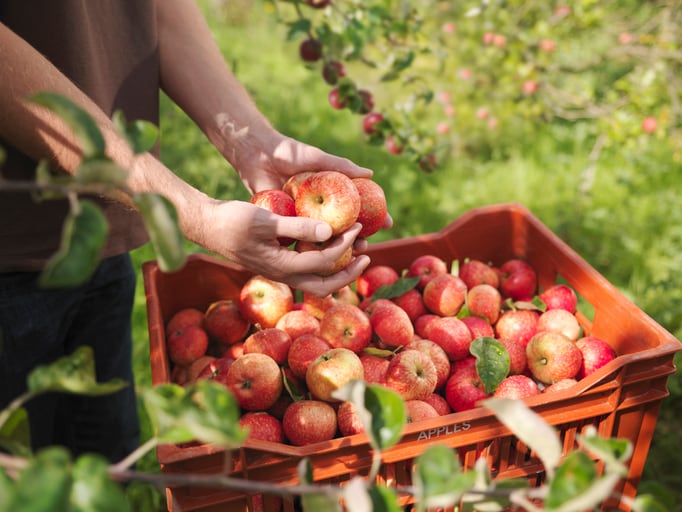
UK project looks to protect lost apples amid climate crisis
Heritage apple trees at RHS Garden Rosemoor, a public garden in England, will be sampled this spring as part of a research project to recover lost West Country apples and identify varieties that hold important genetic traits for UK apple breeding and climate resilience.
Leaves from RHS Rosemoor’s Devon Collection of apples will be sampled as part of the project led by Sandford Orchards and the University of Bristol, to ‘DNA fingerprint’ – or genotype – apples from rare and important orchards across England. The research project will examine ‘survivor’ varieties that have not previously been recorded but have been grafted in more than one location, along with individual trees that are likely the last of their kind.
Every apple tree grown from a pip has a completely unique ‘fingerprint’, while trees that have been grafted share a ‘fingerprint’. If apples from two separate orchards are the same, and aren’t already recorded in an existing collection, this suggests that they were at one point grafted and therefore historically considered good varieties to grow, for example in cider making.
Identifying and preserving forgotten or lost apple cultivars is not just beneficial to growers and cider makers from a flavour perspective but it is also of interest ecologically as they could hold important genetics that may aid the response of apple trees to climate change and less predictable weather patterns.
The University of Bristol began by asking the public to send samples from apple trees in private gardens, which resulted in over 800 specimens being sent in. Since the start of the project the team has now ‘fingerprinted’ over 8000 samples.
Emeritus Professor Keith Edwards at University of Bristol, said: “When we first embarked on this project we were overwhelmed by the public interest. The sheer volume of samples we received by post is testament to the importance of apples in the UK’s food landscape. Identifying and conserving lost or rare apple cultivars is not just about safeguarding biodiversity, it can also boost the UK apple industry’s resilience in the face of climate change.”
Barny Butterfield, founder and owner of Sandford Orchards, said: “The aim of this project is to find great apples, whether that be for fermenting, cooking or eating. In identifying ‘survivors’ that have not been propagated or kept in a collection we have an opportunity to taste back in time and celebrate the incredible diversity of apples that are native to this country.”
Molecular farmer takes first steps to producing proteins in common crops
Isreali biotechnology startup PoLoPo produces ‘real’ animal proteins from crops without using any animals. It has unveiled its SuperAA platform, which it says is the first step to producing proteins in common plant crops. “The SuperAA platform uses plants as living factories, and leverages their natural productivity and storage organs to grow proteins that are identical to protein derived from a chicken’s egg,” said PoLoPo CEO Maya Sapir-Mir, PhD. “The high-scale production of proteins in plants via molecular farming has the potential to economically transform not only potato farming and processing, but broader agriculture and agtech, for a more resilient and sustainable food system.”
UK’s largest grocer and bank step in to help farmers reduce costs and decarbonise
Tesco, the UK’s leading supermarket and NatWest, the largest UK bank for business and one of the largest for the farming sector, have launched a new discounted climate and sustainable finance scheme for 1,500 of the retailer’s farmers.
The finance provides them with preferential rates on finance to help them switch to sustainable farming methods, including installing renewable energy sources, such as solar panels and wind turbines, and fossil fuel-free heating or cooling systems, such as heat pumps.
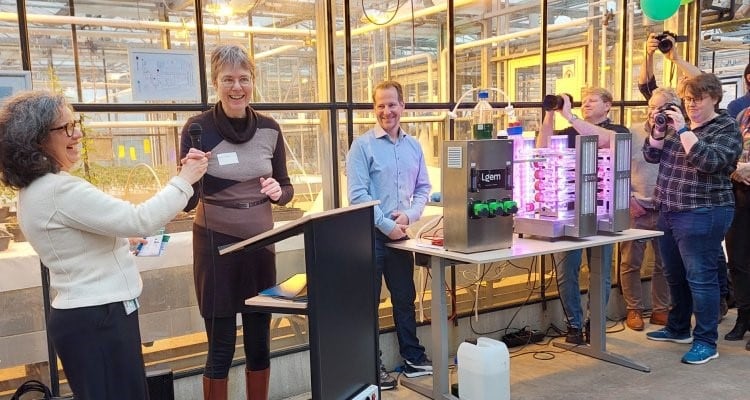
Wageningen expands microalgae farm to accelerate innovation
Wageningen University & Research has opened AlgaePARC 2.0, an expansion of the existing microalgae farm on the Wageningen campus. Serving as a pilot plant, it is where researchers and small to medium-sized enterprises (SMEs) develop and test technologies for the growth and biorefining of microalgae.
The new facility includes additional tubular systems for microalgae cultivation, new screening systems for faster selection of algae strains, and a range of novel biorefinery equipment for researchers to purify bioproducts from algae. This effectively doubles the capacity of the pilot plant.
“We make our technology available to start-ups and other small companies to test their ideas without having to make large investments,” said Maria Barbosa, Professor of Bioprocess Engineering.
Recently, the start-up ReCarbn relocated from Twente to Wageningen to have easier access to the facilities of AlgaePARC. The start-up is investigating a technology called direct air capture, which captures CO2 directly from the air and then utilises it on-site, for example, to ‘feed’ algae. Sophia Hummelman, co-founder of ReCarbn, said: “We want to better understand if this technology can be a good application for the algae. We test, among other things, how algae respond to the flow of CO2 that we administer and the robustness of the technology under changing weather conditions and continuous operation.”

Project helps Swedish farmers adopt regenerative agriculture practices
eAgronom, the agriculture-focused climate tech company helping farmers adopt sustainable practices for the health of their farms and the planet, announced its expansion into the Swedish market. Thanks to a strategic partnership with Stockholm-based alternative lending firm Gardskapital, eAgronom plans to support the widespread adoption of regenerative agriculture practices for Swedish farmers across 20,000 hectares of arable land in 2024.
Matthias Karthäuser, Founder & CEO at Gardskapital, said: “Farmers play an indispensable role both as producers of food and energy and as stewards of the soil. The transition to more climate-friendly methods has enormous benefits from a risk-management perspective and can help farmers reduce input costs. Combined with carbon credit sales via eAgronom, we’ll support farmers in improving both their soil health and financial performance. We’re very enthusiastic about this partnership and ready to help Swedish farmers actively monetize their contributions to carbon drawdown in Swedish agricultural soil.”
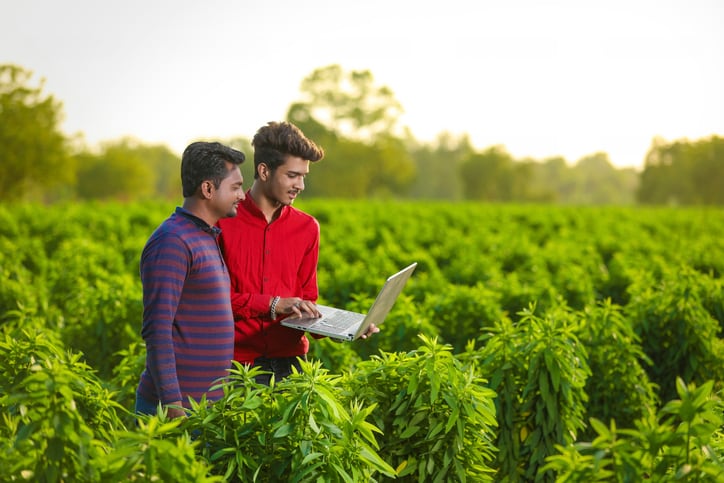
India: collaboration to track crop cultivation, production patterns, and climate change
India-based Cropin Technology has signed a Memorandum of Understanding with Amazon Web Services, a subsidiary of Amazon that provides on-demand cloud computing platforms to companies on a pay-as-you-go basis. The deal will help Cropin develop core data architecture, analytics, modeling, and simulation components that can aggregate global farmland data and broader climate intelligence within a single solution.
Cropin Krishna Kumar and co-founder said: “We can analyse and identify changes in cultivation patterns at a country scale, spanning from sowing to harvesting. This includes examining weather parameters, moisture availability, and disease outbreaks at scale to understand their impact on crop health and yield. These insights are crucial for policymakers, enabling them to make informed decisions to combat hunger and ensure food security. Our collaboration with AWS marks a significant step towards building a global real-time decision intelligence solution, which will provide insights into several aspects of food security - agriculture, climate, trade, and supply chain - in one dashboard. This engagement with AWS helps us showcase the use of technology, data, and AI to solve these pressing issues.”
Shalini Kapoor, director and chief technologist at AWS India Private Limited, added: “The world population is expected to reach 9.8 billion by 2050, increasing food production requirements on the arable land available today. At AWS, we are inspired to work with customers to solve the most complex challenges at scale. Our work with Cropin showcases the power of advanced compute capabilities on the cloud to drive social and environmental impact. AWS’s generative AI, simulation, and data analytics technologies can help organisations like Cropin surface actionable and relevant insights from diverse data sets, and scale their solution globally to empower decision makers to reduce food insecurity.”
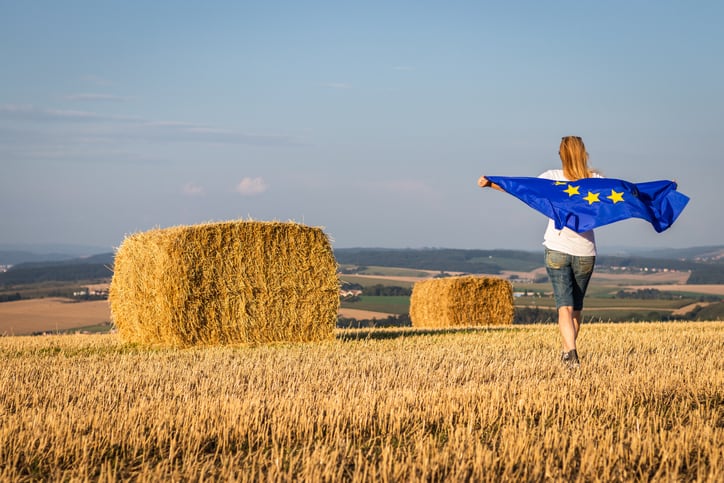
€30 million portfolio to speed regenerative agriculture in Europe
A coalition of food innovation organisations has launched the Regenerative Innovation Portfolio, which aims to leverage regenerative agriculture’s potential in Europe by demonstrating innovative pathways and scaling existing initiatives through new partnerships across agrifood value chains.
EIT Food – the world’s largest food innovation community – will deploy €15 million to support the portfolio, to be matched against funding from corporate partners. EIT Food is supported by the European Institute of Innovation and Technology (EIT), a body of the European Union.
The Regenerative Innovation Portfolio, established as a Food Innovation Hub Europe Initiative, has been developed by a coalition of EIT Food and Foodvalley, supported by the Food Collective. The Portfolio takes a landscape-level approach, going beyond individual farms to consider collaborative approaches that span multiple sectors, working at a larger scale.
To date, the Regenerative Innovation Portfolio has already identified five potential priority landscapes throughout Europe where multiple stakeholders – such as regional governments, investors, and retailers – have mutual interests and complimentary sourcing needs. Within these landscapes, the Portfolio aims to foster greater collaboration across sectors and value chains to help farmers make the transition to regenerative agriculture practices.
EIT Food will match partner contributions of €5 million per year for three years building up to a potential total investment of €30 million. Additionally, some activities in the Portfolio may be designed to generate a return, which will be re-invested in the Portfolio. All funding will be used to launch and support Portfolio landscape initiatives, ecosystem development and inter-landscape learning in a community, as well as actively support initiative participants with applications for external funding, including government subsidies, public and private grants, and VC and angel investments.
Richard Zaltzman, Chief Executive Officer of EIT Food, said: “It is crucial that we establish a future-fit food system for all: a transition that can only be achieved by prioritising systemic, regenerative approaches to agriculture, in a way that keeps farmers front and centre and fosters collaboration between all stakeholders in the food chain.
“By matching funding from partners that invest in landscape level collaborations in the Regenerative Innovation Portfolio, EIT Food aims to enable a significant commitment to the regenerative transition within Europe.”
Marjolein Brasz, Chief Executive Officer of Foodvalley, said: “We have already seen significant efforts and initiatives from farmers and cooperatives in the shift to regenerative agriculture. The Regenerative Innovation Portfolio will be crucial in helping to practically scale and expand these approaches.
“By creating a collaborative community, the Regenerative Innovation Portfolio will generate and share learnings and experiences between landscapes which will help to foster more successful partnerships and innovation in the future and get all stakeholders in the landscape transition to play their role.”
Corporates that are involved in the Portfolio stand to derive several benefits from the Portfolio’s collaborative, landscape-based approach. In practice, farmers do not supply to a single off-taker, but supply a range of commodities to numerous stakeholders, making close collaboration between off-takers essential to allow for the production of a broad range of regenerative crops and products at scale. To this aim, the Portfolio brings off-takers together and fosters new types of innovative, cross-value chain sourcing models. Furthermore, by sharing costs, knowledge and experiences, the Portfolio allows corporates to benefit from complementary capabilities and resources.
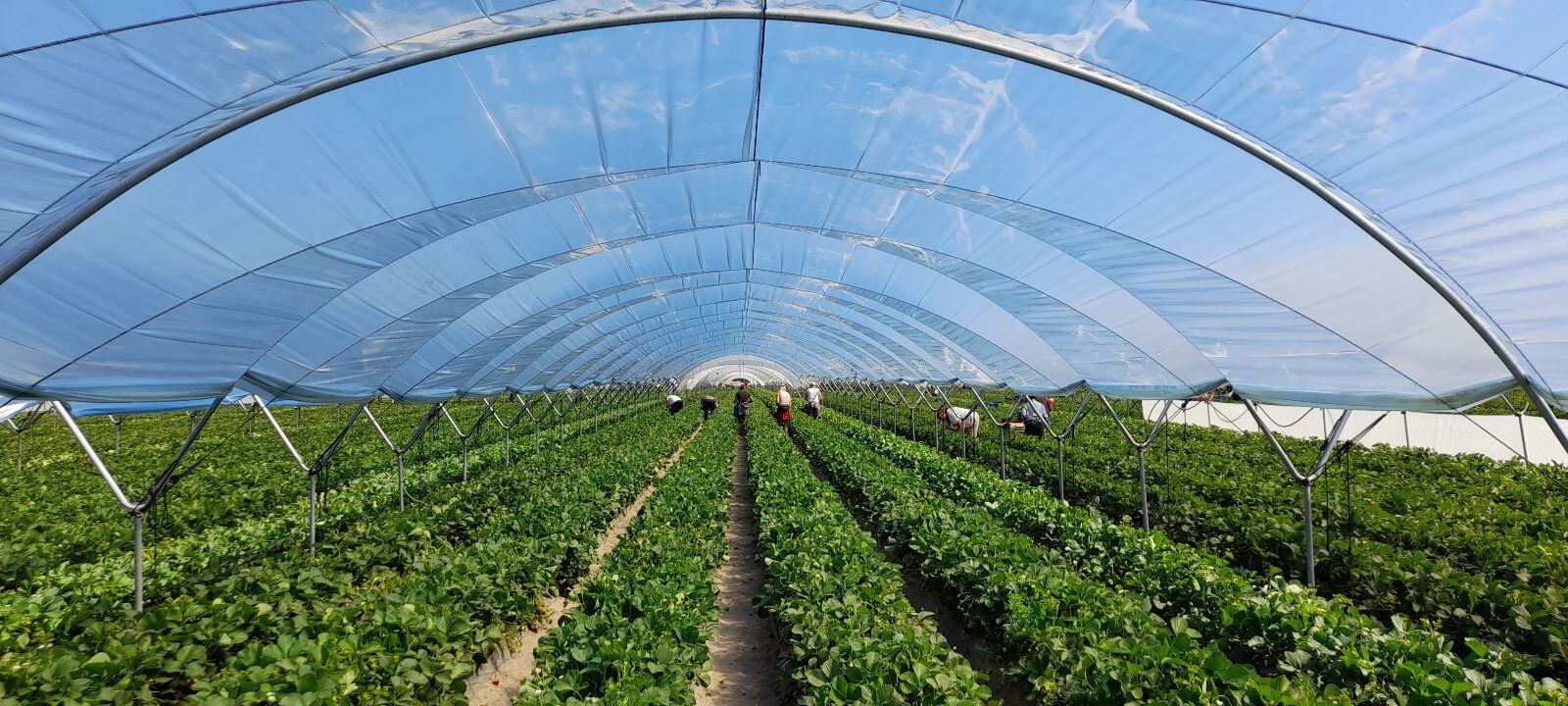
Greenhouse covering start-up expands in Egypt
iyris (formerly RedSea), whose crop covering technology is designed to assist commercial farming in hot climates, signed of a Memorandum of Understanding (MoU) with Magrabi Agriculture – the Egyptian fresh produce provider to 60 countries.
The MoU covers sales of iyris’ technologies - including its award-winning SecondSky greenhouse covers and data platform, and access to all upcoming iyris innovations – to Magrabi Agriculture, for deployment in its Egyptian farming facilities and to support its international operations.
According to iyris, the SecondSky covers can reduce energy consumption by over 40%, water use by 30%, and profitability by 28% - potentially transforming Magrabi’s farming operations, improving its sustainability and profit margins, and enhancing produce quality.
The partnership will build on iyris’ presence – with 30 hectares of iyris SecondSky roofs already installed on a major government-owned site in Egypt. iyris’ technologies are now used by growers in eleven countries across five continents.
iyris’ recent strategic rebrand from RedSea has also cemented its transition to a pure-play technology company, focusing on the commercialisation and development of AgriClimate technology solutions.
iyris has also appointment Bruno De Oliveira as VP East Africa & Egypt to bolster its operational team in the region, following increased customer demand. He called the MoU a major step in advancing commercial farming in the region, and hot climates globally. “The partnership reinforces iyris' exceptional regional reputation and its engagement success with the largest growers in target market countries. The growers recognise the potential impact and improved profitability that iyris’ technologies bring to agricultural practices.”
Ehad El Maghraby, director of planning and development at Magrabi Agriculture, said: “In iyris, we have a partner that has developed a suite of hot climate agriculture technologies that will contribute significantly to our capability to sustainably serve our international client base.
iyris technologies are targeted to hot climate agriculture, extending the growing season, reducing crop inputs and improving the quality of produce delivered, and that aligns completely with our business objectives. We are excited about how this partnership will enable us to grow our business and meet the increasing need to supply high quality produce to all our export markets that have suffered from the impact of increasing high heat on yield.”


